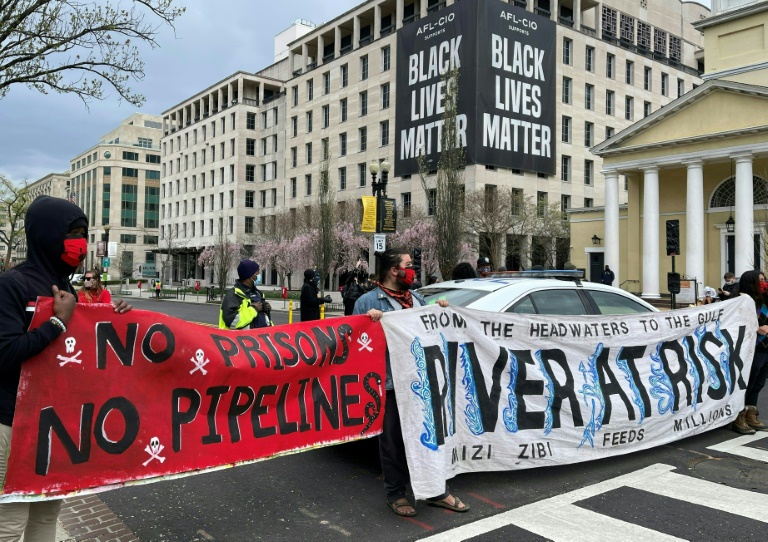Blocked by US President Joe Biden, Canada’s TC Energy said Wednesday it had officially terminated the Keystone XL Pipeline project, throwing in the towel on a controversial initiative opposed by environmental activists.
TC Energy will coordinate with regulators, indigenous groups and other stakeholders “to meet its environmental and regulatory commitments and ensure a safe termination of and exit from the Project,” the company said in a press release, confirming that it had notified the government of the province of Alberta.
Biden formally rescinded a permit for the pipeline, first proposed in 2008, by executive order on his first day in office in January 2021.
He had vowed during the presidential campaign to end the project over environmental concerns, a reversal of the stance taken by predecessor Donald Trump.
While the project has long been backed by Canada, Keystone XL had been opposed by environmentalists and indigenous groups, who have organized rallies against the pipeline in Washington, Ottawa and in the affected areas throughout the last decade.
The 1,210-mile (1,947-kilometer) pipeline, starting in 2023, was to transport up to 830,000 barrels of oil per day from the Alberta oil sands to Nebraska and then through an existing system to refineries in coastal Texas.
TC Energy argued that bringing so much oil from friendly, neighboring Canada would reduce US dependence on the Middle East and Venezuela by up to 40 percent.
The State Department estimated the plan would have created 42,000 temporary jobs over the two-year construction period, but opponents noted that just 35 permanent jobs would be created for pipeline maintenance.
-‘Dirty’ oil-
The US Environmental Protection Agency had raised an objection to the project under the National Environmental Policy Act (NEPA), and former president Barack Obama vetoed Congress’s approval of the Keystone proposal in 2015.
Trump, however, supported the pipeline as part of push for “gleaming new infrastructure” and tried to revive the operation, but was thwarted by court rulings to halt construction in 2018 — before again approving a permit in early 2020.
Alberta’s tar sands are considered to have the “dirtiest” oil on the planet.
Unlike traditional crude which gushes from a well, tar sand oil must be dug up and essentially melted with steaming hot water before it can be refined. It results in huge lakes of polluted water and the strip-mining of millions of acres of once-pristine boreal forests.
Environmentalists argue tar sand oil contains a harmful and corrosive component — bitumen — which makes pipeline ruptures or leaks more likely and carries greater health and safety risks.
TC Energy argued that buried pipelines are far safer for transporting oil than ships or trains, but critics noted the existing portion of the Keystone pipeline developed a dozen leaks in its first year of operation.
Kendall Mackey, a campaigner with the activist group @350, said the project’s demise was a harbinger of more casualties as environmentalists challenge fossil fuels.
“The fight to stop Keystone XL was never about one pipeline,” Mackey said in a news release.
“This victory puts polluters and their financiers on notice: terminate your fossil fuel projects now — or a relentless mass movement will stop them for you.”
“After more than 10 years — we have finally defeated an oil and gas giant!
Keystone XL is DEAD! We are dancing in our hearts for this victory!” the Indigenous Environmental Network tweeted Wednesday.











